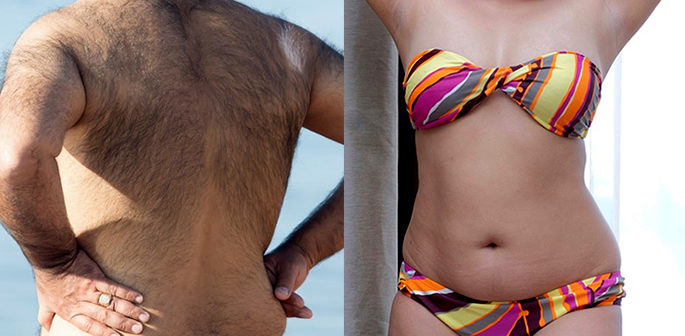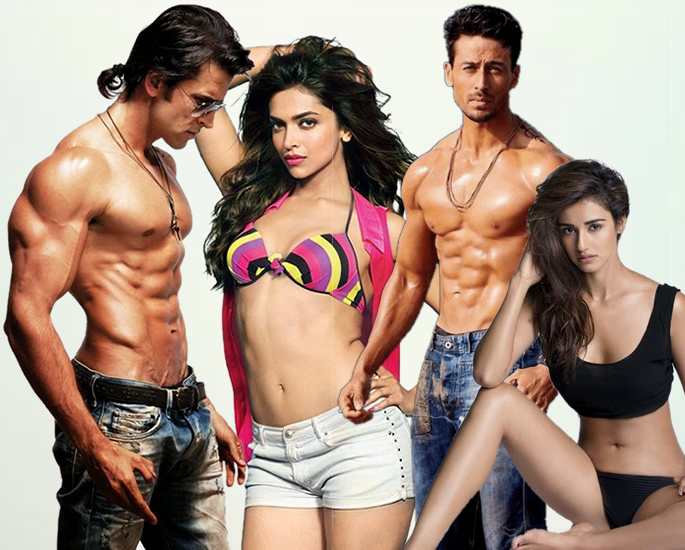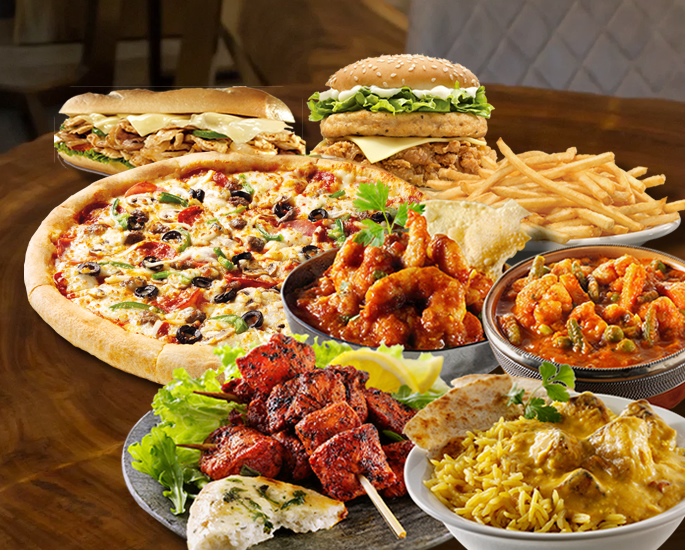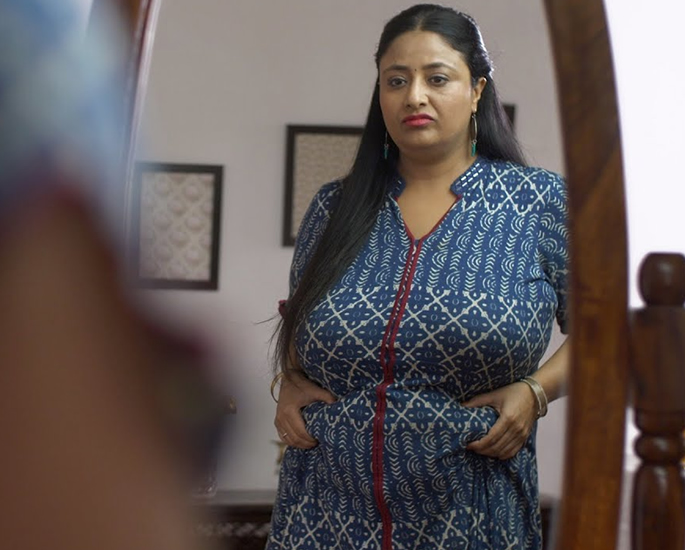"I did not look like the women on social media.”
Body image is a complex, psychological and multidimensional concept faced by both men and women as they struggle with accepting their physical form.
Community variations in attitudes to body size are constructed by several elements, including cultural and societal pressures.
Our opinions of our body manifest the way we function. This involves our thoughts, emotions, behaviours and even relationships.
This dissatisfaction can lead to several issues such as low self-esteem, depression, eating disorders and much more.
The effect of harbouring a negative body image can essentially impact the quality of life.
But why is body image an extensive construct in reflecting our definition of self-worth and wider acceptance?
Despite popular belief, a negative body image is not always associated with being overweight.
In fact, body dissatisfaction can occur for people who are categorically slim or lean in size.
The desirable body image for women is stereotypically perceived to be someone with a thin, toned and hourglass figure.
While for men it is six-pack abs, a broad chest and muscles.
There are four elements which determine body image. These include:
- Affective body image (how you feel)
- Perceptual body image (how you view)
- Cognitive body image (how you think)
- Behavioural body image (how you behave)
However, it is crucial to remember that everybody is different and social constructs like an ideal body image is misconstructed.
We explore the factors which contribute to body image issues for South Asian men and women.
Social Media & Marketing
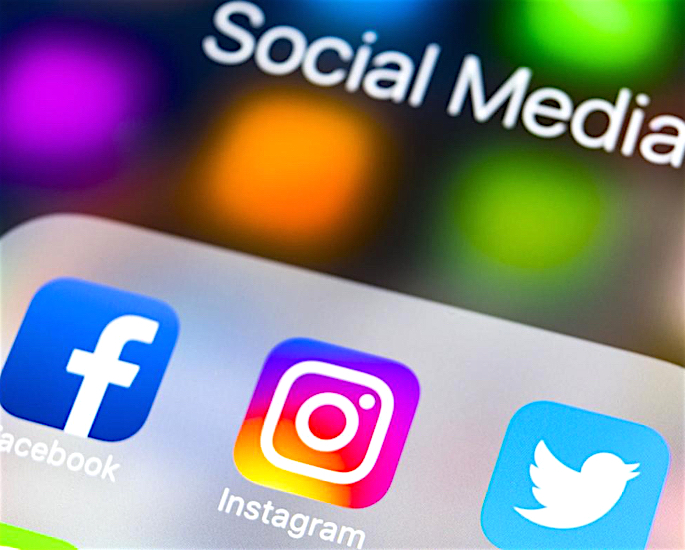
The world of social media seems to be farfetched from the reality of the ‘real’ world.
As you mindlessly scroll through your social media pages chances are you will witness several posts of people’s bodies.
For example, witnessing a celebrity’s photoshoot or a social media influencer’s holiday selfie, the chances are they will look ‘picture perfect.’
Viewing their so-called perfect bodies can lead to a distorted reality of body size.
According to a postdoctoral researcher at Macquarie University in Sydney, Australia, Jasmine Fardouly, people are likening themselves to what they see on-screen. She said:
“People are comparing their appearance to people in Instagram images, or whatever platform they’re on, and they often judge themselves to be worse off.”
If you type in the hashtag, ‘#fitspiration’ into Instagram, you will see over 18,000,000 posts appear.
As you scroll through you will see a particular body type overtake your feed – pictures of toned physiques.
Despite the motive of this hashtag aiming to inspire people to get physically fit, it can instead, affect one’s self-esteem and mental wellbeing.
However, very rarely do social media users stop and think – people typically post the best side of themselves online.
This essentially leads to the use of photo editing apps which alter images to fit the ‘ideal’ view of the ‘right’ body image.
Much of this can be as a result of the unrealistic beauty standards set by mainstream media.
We spoke exclusively to 25-year-old Sobia, who admitted to looking to social media for approval concerning her body size.
“During my teenage years, I was obsessed with looking at celebrities pictures on Instagram.
“They would flaunt their perfectly toned bodies which led me to view mine negatively.
“They had no rolls, cellulite, body hair and flab. When I would look at my body in the mirror I felt inadequate.
“Unknowingly, I was body shaming myself. This led me to develop an eating disorder.”
“Needless to say I dropped the weight in an unhealthy manner and even though I was categorically skinny I was still not happy.
“I did not look like the women on social media.
“My situation got worse and I had to seek professional help in order to realise that everybody is beautiful including my own.
“I no longer obsess over my body size. For me, it is important to maintain body health and I would strongly urge others to do the same.”
For men of South Asian descent, there can be a number of things which can impact their confidence when it comes to their bodies.
For example, it is fairly common that some Asian men can have back hair and be quite hairy. The other battle is obviously with weight and being fat.
The surge of products for men to conform to be more body beautiful is also a sign of how marketing by major brands targets men for such ‘imperfections’.
From creams for hair removal to fat burner pills, it’s all there for those that need them.
Sameer, a 32-year-old gave us an insight into his experience of a relationship related to his body:
“I got married young and it was arranged. I never thought about how my body would impact a person’s outlook on me as a person but it did.
“My ex constantly jibed me about having a hairy back and that I was on the ‘tubby’ side. Although she would dress it up as a laugh and joke. It was clear she meant it.
“Maybe she was comparing me to someone else but this kind of emotional abuse can definitely have a lingering effect even on a man.
“I am glad that such a toxic person is no longer around in my life. And today I am adored for who I am not if I have a hairy back or even a cuddly tummy.”
It appears social media influences women more than men. According to Emotion Matters, studies reveal that “88% of women compare themselves to images they observe on social media.”
Out of this 88%, more than half emphasise the comparison is disapproving.
While “65% of men compare themselves to images on social media with 37% indicating that the comparison is unfavourable.”
Wedding Pressure
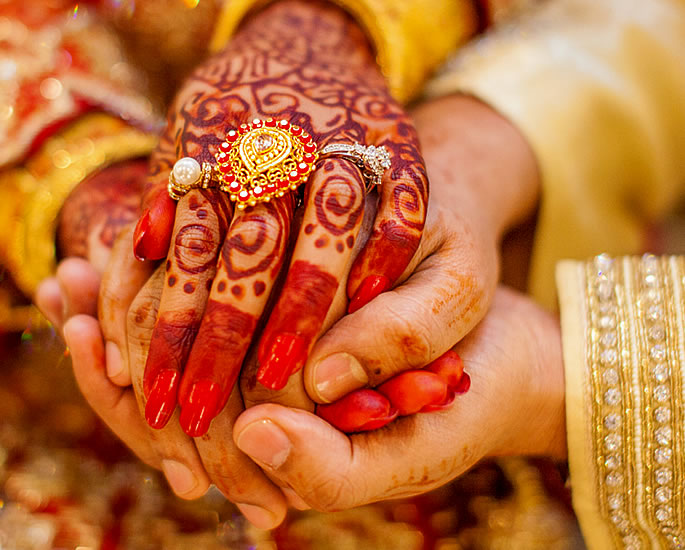
The South Asian community is renowned for its elaborate weddings. South Asian parents embed the significance of marriage in their child’s mind.
Although time has progressed, it can be argued that not much has changed in the mindsets of South Asians concerning marriage.
Despite achieving a successful career, parents are truly happy when their child ties the knot.
This is the ultimate goal for parents which is either accepted or enforced on their children.
With this comes the stress of looking acceptable and once again this can gravely impact your self-esteem.
Having the ‘right’ body size is certainly desirable and this is not sugarcoated by parents and a potential partner.
For women, potential in-laws and partner looking for a daughter-in-law/wife who is slim. Being overweight leads to the prospective bride being trolled mercilessly.
DESIblitz exclusively spoke to 44-year-old Pav. She says:
“I got married over 20 years ago. I have always been a size 8 since I can remember.
“When my rishta was finalised I was praised by my extended in-laws for being skinny and petite.
“At the time it made me feel good about myself. However, looking back at it now it’s made me think that I would have been treated differently if I was larger in size, not that it would have mattered to me personally.
“Although time is progressing, I feel not much has changed in terms of body image.
“It continues to be one of the top requirements alongside being able to cook and clean for women.”
As well as the construct of an ideal body image is problematic for women, it also troubling for men.
Traditionally, in South Asian culture, women were told who they were going to marry without having much of a say.
It didn’t matter whether they approved of their prospective groom. If their parents were happy, they were also expected to be happy.
However, times have changed. Asian women have a say in who they wish to marry. It can be argued that women want their partner to have the ‘ideal’ body size.
DESIblitz exclusively spoke to 30-year-old Kam. He explained why he initially struggled to get married. He said:
“I have always been chubbier since I was young. I grew up being known as the fat kid. In fact, I was always made fun of for being overweight.
“Despite this, it was not until I was actively looking to get married that I truly realised the extent of the importance of weight.
“My parents had been to several families to ask for rishta. However, they were turned down every time.
“Although it was never said directly to me, my parents were told by these families that nobody would give me their daughter’s hand in marriage because I was overweight.
“Without a doubt, this was the lowest point in my life.
“Despite what people said, I found someone who loved me for me and not my body size.”
These types of comments can be detrimental to one’s mental and physical health.
It can lead to depression and eating disorders because of the immense pressure caused by being the ‘correct’ size for a marriage.
Bollywood
Six-pack abs, sculpted physiques and slim figures are associated with the majority of the Bollywood celebrities.
Gone are the days when having a little poach tummy was linked with wealth and prosperity, even on-screen.
Instead, the likes of Ranveer Singh, Hrithik Roshan and Shahid Kapoor make the ladies go weak in the knees while making men feel envious.
Likewise, stars like Deepika Padukone, Priyanka Chopra, Katrina Kaif and Disha Patani are looked to as inspiration for millions of women worldwide.
In films, the heroine or hero is someone who has washboard abs and a slim figure. This is emphasised when filmmakers draw attention to their bodies.
While the characters who are larger in size are usually the comical characters who are fat-shamed.
‘Fat’ people in Indian films are usually subjected to as the ‘other’ and jokes are made at their expense.
For example, in the 1990 film, Dil an angry Madhu (Madhuri Dixit) challenges Raja (Aamir Khan) to take part in a boxing competition.
If he wins, Raja put forth the condition that he can kiss Madhu which was not commonly shown in films during that time.
However, if he was to lose, Madhu’s counter-condition was that he would have to kiss her ‘fat’ friend Mimi.
As expected Mimi was shown with a mouthful of food. This condition was meant to amuse the audience while leaving Raja feeling mortified at the possibility of kissing a larger woman.
It is no surprise that Raja won the challenge and was saved from having to kiss Mimi.
There is no doubt such a scene from a Bollywood film can leave people feeling horrified and ultimately feeling self-conscious.
This is not to say that all Bollywood films are demeaning to ‘fat’ people. Films like Dum Laga Ke Haisha (2015) addresses the issue of fat-shaming.
Prem (Ayushmann Khurrana) marries Sandhya (Bhumi Pednekar) who is much larger in size compared to him.
Due to her being overweight, Prem disregards his wife and is embarrassed by her.
Speaking about Dum Laga Ke Haisha, film critic, Priyanka Prasad said:
“Dum Laga Ke Haisha provides some good laughs and breaks all stereotypes with its lead heroine, Bhumi Pednekar.”
Prem and Sandhya overcome the difficulties in their marriage caused by harbouring a negative body image after partaking in a competition.
While it is expected that their bittersweet story touches the heart of millions of fans, unfortunately, their story is not entirely realistic.
This is because such things like competitions do not save marriages although the effort is somewhat commendable.
It is clear that fat-shaming is certainly not funny and nor is it a joke.
Family & Food
Another cause for concern related to body image, in fact, starts within the home.
While it can be assumed our loved ones would shield us from negativity, sometimes this is not always the case.
Family members whether immediate or extended always seem to have a say in the way we should look.
At one time, an ‘optimal’ look of health for a child was to be chubby and not underweight.
Therefore, South Asian families often ‘over-fed’ their children. Especially, the boys in the family, who were given preferential treatment.
But as time has progressed and more knowledge about being healthy has been acquired, many South Asian parents now prefer their children to be ‘slim’ and ‘skinny’.
If they are not, then they are often compared to skinnier siblings or relatives.
This can lead to the child feeling worthless and stressed because they are overweight.
Yet, it is important to remember that the traditional South Asian diet of curries, roti, rice and fried snacks do not help the situation.
Also, junk food such as pizza, fries, fried chicken, burgers and sugary drinks have soared in popularity among South Asian households. These are commonly consumed either at home or when eating out.
Therefore, from a young age, children are fed such foods which are high in fats. This ultimately leads to weight gain.
While it is deemed fine during their younger years, as they get older they are ridiculed and taunted for the same.
Obesity in children from South Asian backgrounds is a major issue.
Research conducted on childhood obesity at St George’s, University of London and University College London concludes that South Asian children in the UK have higher obesity levels.
According to Mohammed Hudda, lead author and research fellow in medical statistics at St George’s, University of London:
“Our results suggest that more than half of all South Asian boys – and two in five girls – were overweight or obese by the time they left primary school. That is extremely worrying.”
This can result in confusion for children who view themselves as being ‘bigger.’
When they get to their adolescent years, their perception of the ‘correct’ body size becomes apparent.
They are then constantly told by parents and relatives to lose weight. This is because they associate beauty to body size.
The slimmer you are, the prettier you are perceived to be.
DESIblitz exclusively spoke to 20-year-old Rashida. She opened up about her body image struggle. Rashida said:
“I have experienced a lot of body shaming from the Asian community, in particular, supposed aunties I am not familiar with.
“On numerous occasions, they have ridiculed me. They have said things like, ‘Your face is nice but your body lets you down’ and ‘You would be so much prettier if you lost weight.’
“These types of comments made me feel worthless. But now I have come to the realisation that my body is solely my own.
“If I feel comfortable in my own skin then it shouldn’t matter what other people think or even say.”
This struggle faced by Rashida is relatable to many young South Asian women who have been put down because of their size.
We spoke exclusively to Falak, an 18-year-old student. She recalled a time when she was targeted by a man who claimed to be her uncle.
“He visited my house and I happened to answer the door to him. While I greeted him, instead of receiving a greeting back, he made a comment about my weight.
“He said, ‘A smart girl like you should lose weight. It is not nice for your family so you need to lose weight.’
“That made me feel humiliated and as a result, I broke down into tears.
“Looking back at this moment, I still feel enraged. However, I have realised that people’s hurtful comments should not affect me.
“Instead, I have turned this hurtful experience into a learning curve. Also, I must say that he was not slim himself.
“However, hypocrisy is nothing new in the South Asian community.”
Similarly, South Asian men face the same problems when they are targeted for being overweight by their families.
Rajvir, a 23-year-old, explained what he went through, saying:
“When I was young my grandmother and mother would constantly try to feed me. Literally, making me have an extra roti or two or more slices of pizza.
“So of course, I put weight on as a child and teenager.
“When I was at school, I struggled with sports and physical education. I would get remarks from other students about being ‘fat’.
“Relatives would also laugh at me especially at gatherings or weddings saying are you wearing extra-large size trousers. I became a novelty for them to make fun of.
“This use to really get to me but I never reacted to it. I use to just laugh along but in reality, it hurt me a lot emotionally.”
It is important for families to understand the impact of their words on an individual.
This can lead one to feel isolated in their own home and resent their body for not conforming to societal norms and expectations.
Another area for women is how their body changes after having children. This can introduce a lot of stress for the mothers of young children.
Nirmala, a 38-year-old mother recalls a major struggle in her life.
“When I got married I was average in body weight but after I had my children, I found it extremely hard to lose weight.
“I tried different diets and went to the gym but nothing seemed to work.
“My husband would taunt me saying you need to lose weight and this use to hurt me a lot and made me feel very unattractive.
“I have since lost some weight but there is no way my body will return to how it was before I had my kids.
“I find that men have higher expectations of women to look good than the other way round. Because I’ve never said anything about him putting weight on.”
Body image pressures are not unknown in the South Asian community. However, it is a topic which is not openly discussed.
Instead, it is something which one battles with on their own. It is a silent battle for many South Asian men and women – one they fight every day.
However, it is important to remember that this social construct should not define who you are.




















































